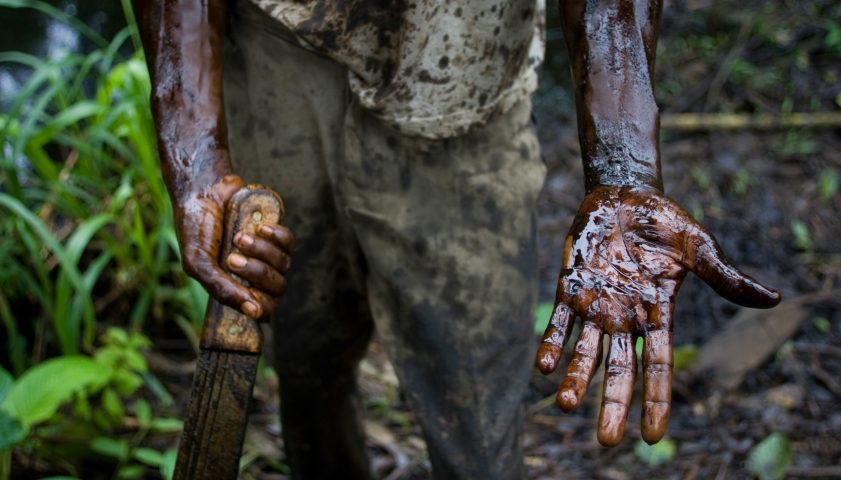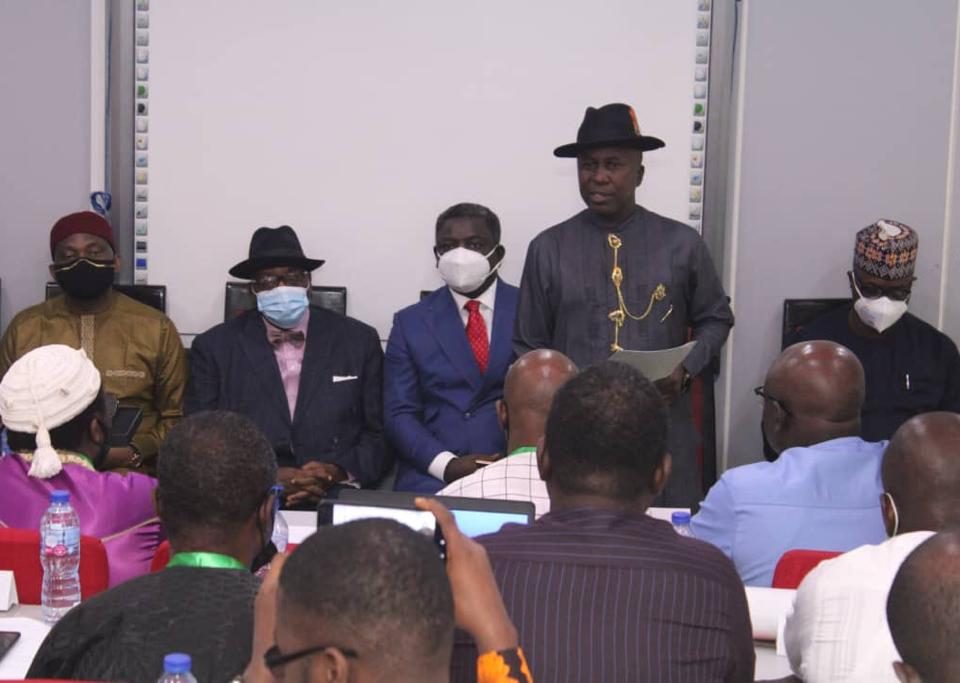
CIES elects Nigeria in to the the Executive Committee of UREAG
March 9, 2017
Cinquains for Professor Steve Azaiki
July 2, 2017By Dele Agekameh
Nigerians have always had cause to condemn the activities of their elected representatives, particularly those at the National Assembly, NASS. The reason for this is that many Nigerians believe the representatives are usually selfish and have been doing everything possible to protect their minority interests rather than the interest of the larger society. That is why for quite sometime the battle has been on for the NASS members to disclose their total take-home pay which the public suspect is mouth-watering, an emolument that does not correspond with the actual performance of the legislators. As a matter of fact, there are many more areas of friction between the NASS and the people.
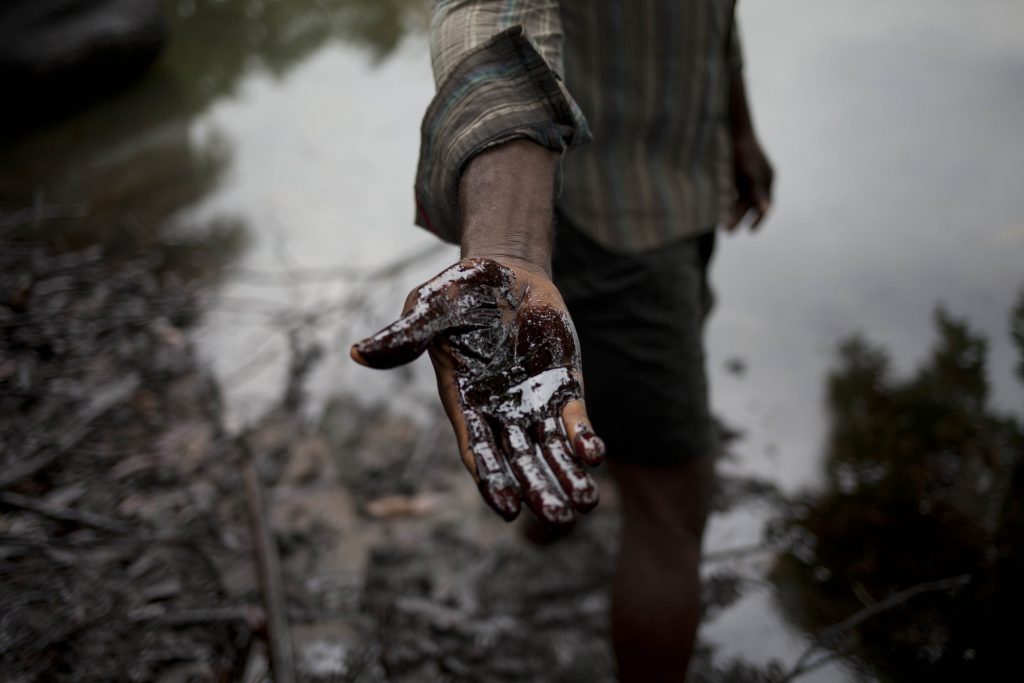
B-DERE, NIGER DELTA, NIGERIA- JULY, 2016: In B-Dere an oil spill from Shell in 2007, polluted all the water, depriving the fishermen of fishes and intoxicating the soil. Nothing is growing anymore is crying Nambi Azikiwe. (Picture by Veronique de Viguerie/ Reporatge by getty Images).
But by and large, a recent development in the Lower House, clearly indicates that the legislators may have, at last, decided to identify with the people in the people’s quest to have a better deal with the government. The day was May 9, 2017. That day, Leo Ogor, the Minority Leader of the House, presented an amendment bill to adjust the Nigeria Liquefied Natural Gas, LNG, (Fiscal Incentives, Guarantees and Assurances) Act. A provision called section 7b, which is an addition to the Principal Law was added to the amended bill. It states that: “Notwithstanding section 7 or any other section of this Act, the Nigeria Liquefied Natural Gas Limited shall pay 3% of its total annual budget to the Niger Delta Development Commission, NDDC, Fund as required by section 14, subsection 1 and 2b of the NDDC Establishment Act, 2000.”

Fishermen sort out their fishing net at the bank of a polluted river in Bidere community in Ogoniland in Nigeria’s delta region August 20, 2011. Picture taken August 20, 2011. REUTERS/Akintunde Akinleye (NIGERIA – Tags: ENERGY ENVIRONMENT SOCIETY) – RTR2Q6OD
While making the presentation, the House Minority Leader said:“The amendment to this Act is aimed at redressing the great injustice that the NLNG has meted out to the people of the Niger Delta region for almost 27 years now.” Promptly, in what is generally seen as a departure from the ugly past in which very important bills like this are left to gather dust on the shelves, the House, without further equivocation, passed the bill.
With that passage of the amendment bill, the battle has now been shifted to the hallowed chambers of the senate for the mandatory concurrence in order to breathe life into the bill. With that, the rigmarole that had attended the passage of the bill all along would have been brought to a safe conclusion.
‘The Federal Government should urgently put in place a mechanism through which all the money accurable to the NDDC is paid promptly and as due to the coffers of the commission to enable the department carry out its mandate without any hindrance’
But the management of the NLNG is not accepting this without a fight. In fact, the corporation has been crying blue murder. The NLNG is saying that it is one of the biggest promoters of corporate social responsibility, CSR, in the country, especially in the Niger Delta region where it operates. The management also laments that the amendment is a threat to the continued existence of the company because the NLNG had succeeded so far, due to the provisions of the NLNG Act.
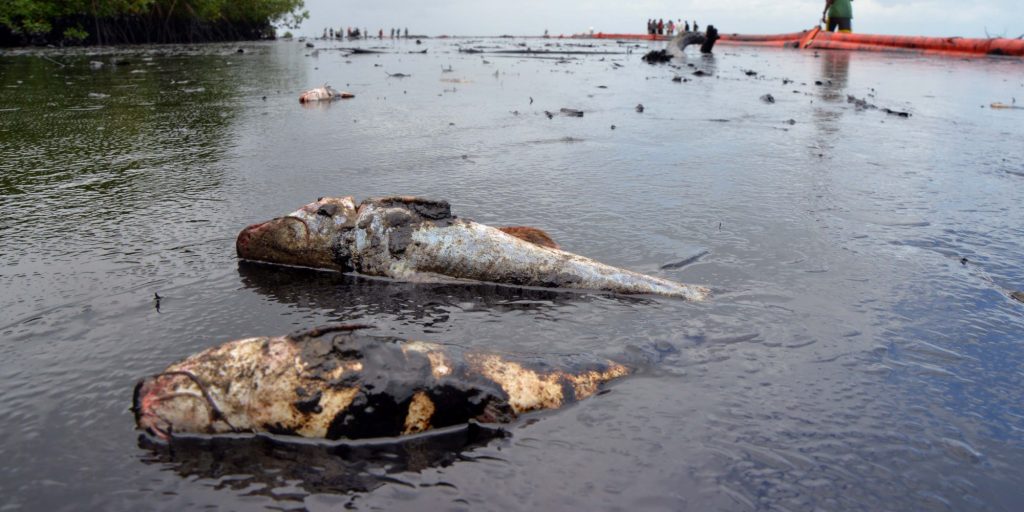
This, according to it, gave investors the confidence to invest in the country. But with the amendment, that confidence could be eroded and such a development could jeopardise ongoing investments for the continued survival of the company. Generally, the management is of the opinion that the amendment will discourage the inflow of investments into the country.
From the lamentations of the NLNG, it appears the company does not want to operate within the existing laws of the country whether with any amendment or not. What the House of Representatives simply did was to pass an amendment to the existing bill requiring the NLNG to pay three percent of its humongous yearly profits to the NDDC as part of its social duties to a region ravaged by neglect in spite of its abundant wealth – oil and gas.
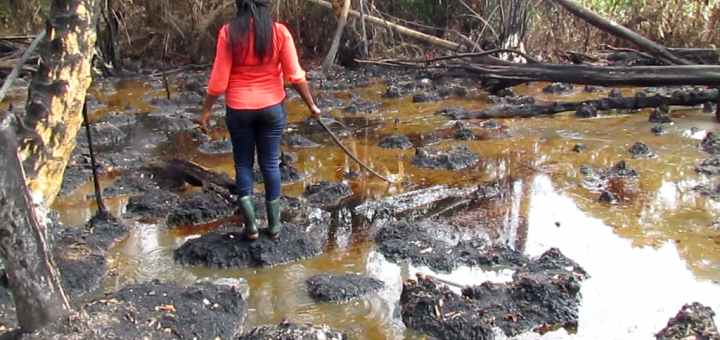
Other companies in the region have acquiesced to this, although some do in name only but not always in deed, leaving the NDDC to be chasing defaulters all over the place. But one thing is that the defaulting companies, at least, recognise the supremacy of the law of the land. The same thing should apply to the NLNG which has already enjoyed some tax holidays in this regard.
It is good news that the House of representatives has now finally decided to put national interest above the cynicism that has characterised our political elite who collude with the oil and gas companies to oppress their own people. If the idea of the tax holiday granted to the NLNG was to enable the company to firmly get its act together and thus create a solid foundation for business take-off, it has surely had more than a generation to do so. This is the more reason the company should realise that it is time to gloriously bow to the impulse of the people and put aside just three percent to develop the area where it has had it marvellously good through the years.
The argument or the claim that the NLNG does not pollute the region, but merely processes, does not hold water. The management of the NLNG should not pretend as if they are operating from the moon or that they are less concerned about the growing agitation for a better deal as being canvassed expeditiously by the people of the Niger Delta region who have been badly treated since oil and gas were discovered in their bowels in 1956. Since then the people have borne the brunt of the massive exploration and exploitation that has taken place in the region without commensurate compensation or anything substantial to show except poverty, misery and disease.
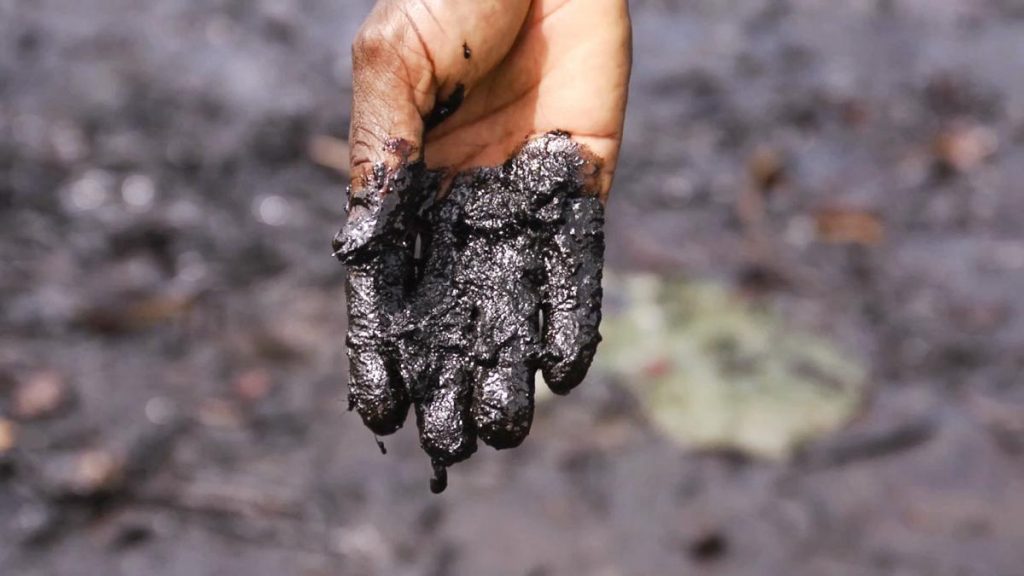
The NLNG makes about N500 billion a year. And it is not even being asked to pay tithe or even half a tithe, but a measly fraction. Yet it yells in pain. The NLNG is owned by four shareholders, and Nigeria, represented by the NNPC, owns 49 per cent. The balance belongs to Shell Gas BV, Total LNG Nigeria Ltd, and ENI International Ltd. These firms control 25.6 percent, 15 percent and 10.4 percent respectively.
Since the establishment of the NDDC in 1999, its activities have been seen from different perspectives by both critics and admirers of the agency. On account of its intervention in the infrastructural uplift of the member states, the commission has, to a large extent, lived up to its mandate. But some people have argued that its achievement profile hardly matches the funds at its disposal.
The heightened expectations are not unconnected with the bloated impression by some people that the agency has an unlimited mandate. They easily forget that the peculiarities of the topography of the Niger Delta pose a lot of challenges to its development in terms of money and time. Perhaps, that is why it is easy for people who do not understand the terrain to hastily jump to wrong conclusions and/or assumptions.

As it stands today, the NDDC is being owed a staggering amount of N1.8 trillion in unpaid statutory allocations in the past 15 years by Federal Government who set up the commission to develop the Niger Delta. In addition to this, the Ecological Fund, another Federal Government outfit, also owes the Commission more than N45 billion. This is not inclusive of tax evasions by some multi-national companies who have been mandated by the law, to pay certain amounts of money to the coffers of the NDDC yearly. Going by all of this, therefore, with what magic wand is the NDDC expected to carry out its mandate and the quick transformation of the Niger Delta region?
The Federal Government should urgently put in place a mechanism through which all the money accurable to the NDDC is paid promptly and as due to the coffers of the commission to enable the department carry out its mandate without any hindrance. Those who relent in the remittance of their statutory dues to the commission should be heavily sanctioned to serve as deterrence to others.
The task of developing the Niger Delta can no longer be undertaken with kid gloves. The government and other stakeholders must stop their hide and seek games and give the region the necessary attention it deserves.
For comments SMS (only) to: 08058354382

